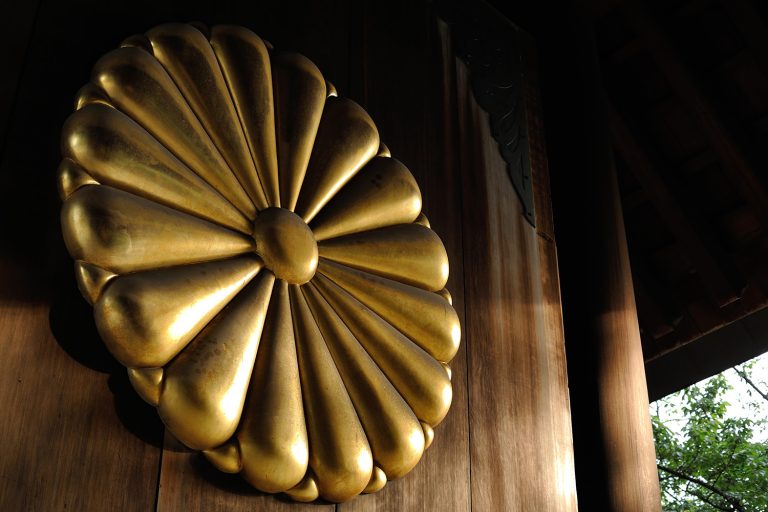Japan’s Nationality Law asks young adults with multiple citizenships to choose a country, but not all seem to do so. Many choose to live in the gray zone. Similarly, many Japanese seeking to live abroad are asked to renounce their Japanese passport. How long can the government look the other way?
Elusive Answers to a Big Problem
Giving up your citizenship might sound like a strange way to connect with your country, but Hana Dethlefsen was forced to make that decision by getting caught in the complicated web of Japan’s Nationality Law.
“I had to renounce my Japanese nationality to qualify for the JET program that I did at age 21. To my understanding, I could give up at the age of 22 anyway, so doing it a year earlier wouldn’t make any difference, ”says Dethlefsen. JET is a government program that invites non-Japanese graduates to work as English teachers in local schools.
“But after arguing with other half-Japanese friends I understood that we have a different understanding of what is acceptable,” says Dethlefsen, who now has Canadian and German citizenship.
The confusion about the legality of dual nationality stems from the opacity of the law and the difficulties in applying it, which makes some renounce their nationalities while others live in fear that one day they will be forced to choose between their citizenship. your identity, and your family ties.
The nationality law officially obliges those who have multiple birthright citizenships to choose one at the age of 22. But in fact, probably hundreds of thousands of people have held multiple nationalities and to date the government has taken no political action to counteract this.
In response to questions about the number of people with multiple nationality, the Ministry of Justice confirmed that there are around 890 thousand people who had or currently have dual nationality. This figure is based on official family records from local municipalities between 1985 and 2016, and includes people who have declared their renouncement of Japanese citizenship, as well as people who are currently assumed to have multiple nationality by birth.
According to a census carried out by The Japan Times of 1,499 people with dual citizenship, 76.8% maintain it, while 23.2% decided to renounce one. The same survey reveals that 39.5% of the holders of multiple passports “always” change their passport to the country they enter, while 37.3% “sometimes” do so.
With the official government stance increasingly divorced from a globalized society with more dual citizens, many are relying on word-of-mouth information on an important, life-changing topic.
“We have received different information about what is and is not acceptable, so some of us had dual citizenship and some of us had renounced our Japanese citizenship when we reached adulthood,” says Dethlefsen.
May (pseudonym) has Japanese and Australian citizenship. May says that years ago, when she wasn’t sure what to do with her dual citizenship, she often relied on internet forums and social media like Mixi to connect with other people in similar situations.
“We talked about what we would do with our dual citizenship, we tried to give each other anecdotal advice. It is the same as now. These issues come up all the time and nobody knows the answer, ”says May.
“When I recently renewed my passport, two years ago, I went into crisis because I had to fill out a form with a new section asking me if I had dual citizenship. I was worried that I would have to give up one of my citizenships. ”
Like May, many people with dual citizenship are surprised to see that passport renewal forms include a section on dual citizenship. It is to confirm if the applicant is a naturalized citizen of another country, and by law it means that their Japanese passport would automatically be taken away, according to an official from the Ministry of Foreign Affairs.
But having multiple passports does not mean that the ministry does not issue Japanese passports, the official added, as the Ministry of Foreign Affairs does not keep records of citizens with multiple nationalities.
Although the murky law has left those with multiple nationalities in a state of anxiety about their status and has prompted many others to take steps to hide it, many Japanese with dual citizenship spoke of their experiences suggesting that the government has decided to look to another. side when it comes to law enforcement.
“I remember once out of distraction I handed over the wrong passport, my American passport instead of my Japanese passport, at the Japanese passport window,” says Chris (pseudonym). “I had a moment of panic, but the immigration agent just told me: ‘no, the other passport.’ I gave him my Japanese passport, he stamped it, and he let me go… It seems like I had been through this situation several times, and there was no problem, ”he says.
And yet there are some cases where people with multiple nationalities have felt pressure from local government officials to choose between one of their nationalities.
Such was the case with James. During his visit to the local government office, he was notified that, to his surprise, he also had Japanese nationality. Since James had registered as a foreign resident at the same office, it was obvious to the officers that he had multiple nationalities.
When he decided to register as a Japanese citizen, local officials were alarmed by his decision. “As I was already registered as a foreigner, it caused a lot of confusion at the office… an employee told me that I needed to hand over my passport and sign a document saying that I was renouncing my US nationality. I said that I did not feel safe doing so, and that I would consult with a lawyer who is familiar with this matter. The officer said that I was not willing to do things that were not convenient. It was an unpleasant experience. ”
One element behind the confusion about the law is that it does not specify the penalties against people with dual nationality who do not favor one. Instead, it only says that the Ministry of Justice reserves the right to “warn” them that they must choose a nationality. If the person with dual nationality ignores one month of receiving the warning, the Japanese nationality is automatically withdrawn.
However, this clause issued in 1985 after the Nationality Law amendment has never been enforced, in part because tracking down citizens with multiple nationalities and encouraging them to make a decision would be a bureaucratic nightmare.
Taro Kono, from the Ministry of Foreign Affairs, defended dual citizenship.
“In fact we are not sure who has multiple nationalities,” said Kei Kurayoshi, the officer in charge of nationality issues, in a 2008 session of parliament. “Due to the uncertainty, send reminders to those who happen to know having multiple nationalities would be a questionable practice, ”Kurayoshi said. “There are many opinions on this, but we have not sent any reminders for these reasons.”
This is not to say that the law is completely ineffective, since in theory Japanese citizenship could be revoked if a person with dual citizenship does not make the decision. Its very existence serves as a threat, says Yasuhiro Okuda, a law professor at Chuo University who specializes in Nationality Law.
Even if it is only on paper and not in practice, the official position that one can only have one citizenship sends a powerful message to people of multiple nationalities.
“I have a strong connection to my Japanese heritage, but I don’t feel welcome in Japan. Having to choose my nationality at 22 was the first instance that I was not ‘Japanese enough’, ”says Dethlefsen.
This same sentiment is shared by Chris.
“If I were forced to decide which citizenship to retain and which citizenship to abandon, I would see it from the point of view of what culture and which country I would have to leave,” he said. “I think it is a decision that involves feelings.”
Michiko was born to a Japanese mother and a German father, but she never lived in Japan, only receiving her Japanese passport at the age of 22 on a visit to the country. She didn’t know the intricacies of having dual citizenship in Japan, but she knew something was wrong when her mother took her to the local city hall to get her first Japanese passport.
“When we got the passport at the local town hall, I didn’t feel it was legal,” Michiko said. “I felt strange. I had never investigated or anything, but I had the impression that it was illegal to have a second passport. ”
This climate of fear creates a vicious cycle of negativity, according to Teru Sasaki, a sociology professor at Aomori Public University.
“For some, nationality is an emblem of Japanese identity. The very notion of a dual national calls it into question and creates fear in those who are not familiar with the concept, ”says Sasaki.
Regardless of whether dual nationality is approved or not, “the idea of a single nationality is also linked and reinforced in postwar Japan’s thinking of a pure and homogeneous nation-state,” said Atsushi Kondo of Meijo University. in Nagoya. “The wording of the current law shows strong hope in maintaining that ideal.”
“For some, nationality is an emblem of Japanese identity. The very notion of a dual national calls it into question and creates fear in those who are not familiar with the concept. “
The leader of the Renho Democratic Party is satirized for her alleged dual nationality
Sasaki noted that this climate of fear was especially prominent in the past year when the media covered the case of Renho, who was then the leader of the Democratic Party, and had Japanese and Taiwanese citizenship.
“The recent reaction to whether or not Renho had dual citizenship created an atmosphere of fear,” he said.
At the same time that several citizens are consumed in this cloud of uncertainty, any hope of advancing the issue during the government of the Liberal Democratic Party has been lost in the fury that the Renho incident caused. In addition to intricate feelings about her identity, this lack of political inertia has contributed to exacerbating the issue.
“The nationality question is a very significant issue for nationalists, as well as for some politicians,” says Kondo, who expressed skepticism that any change in the Nationality Law will occur soon.
He added that Renho’s case is an example of reluctance to change the political scene, saying that “some politicians have made a big scandal about the possibility that she had dual nationality, despite the fact that none of the facts had been confirmed. ”
Even some politicians who were in favor of changing the law refrained from commenting on the issue.
Foreign Minister Taro Kono, once an advocate for changing the law and who even published a proposal allowing dual citizenship under certain conditions, has taken a softer stance.




